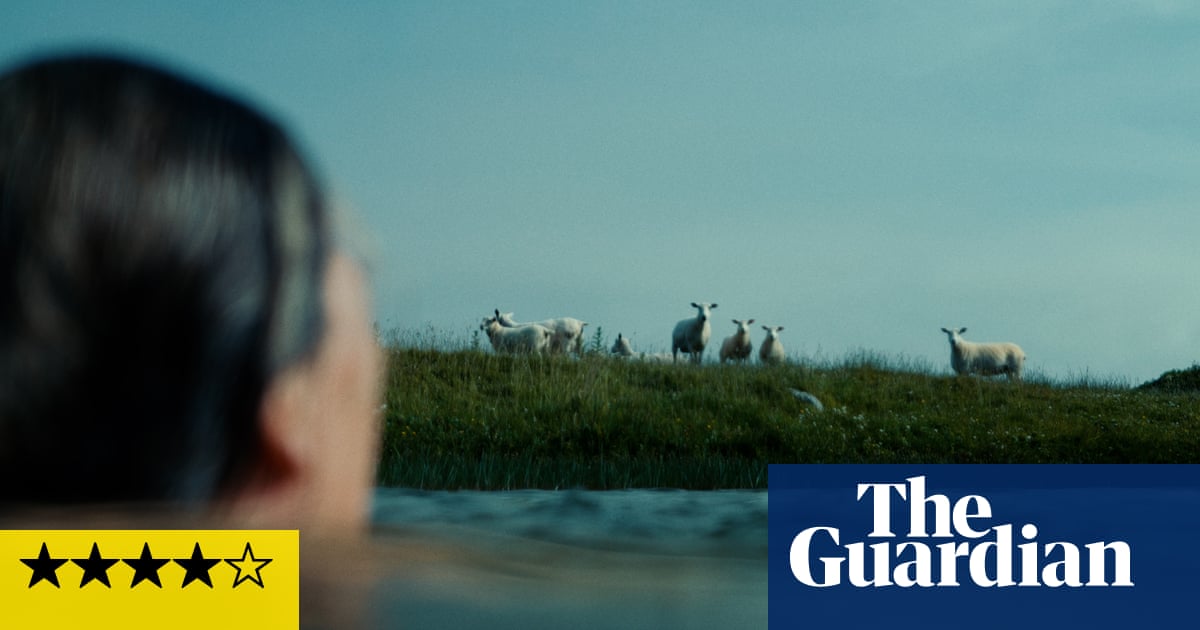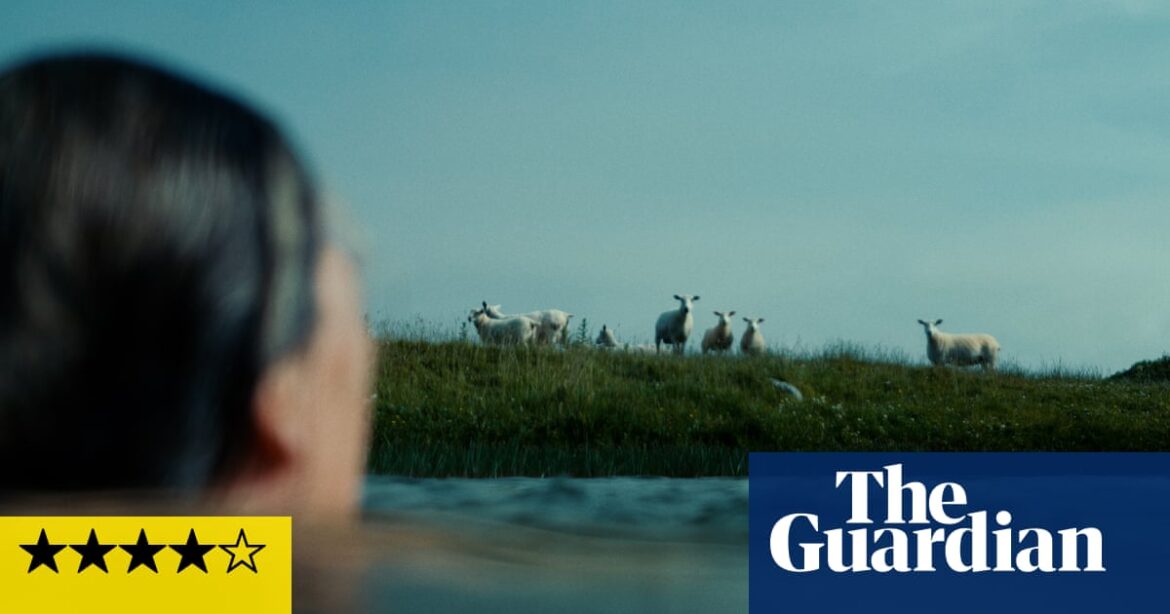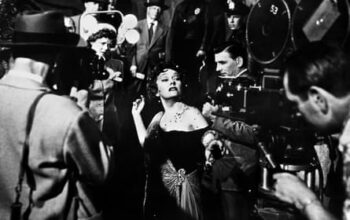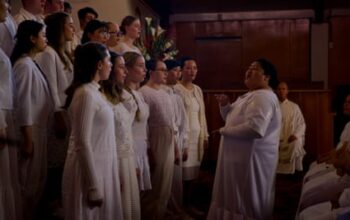
Near the beginning of this beautiful, brooding film, Orla Barry (its subject/writer/narrator) remembers a farming expert advising her to go into cattle or vegetables after she inherited her family spread in Ireland. But really he could tell, she says, that she was “Orla with the ovine eyes” – meaning that her undeniable destiny was with the even-toed ungulates. Director Cara Holmes lets Barry’s flitting, digressive monologue shape the film, uttered in the slow, deep voice of a countrywoman just as used to declaiming from the stage in performance art pieces.
Because, it turns out, Barry is also an artist who works in a range of media, using text and typography as well as film, fleece and whatever takes her fancy. Having moved from Belgium and started raising sheep with her then partner Elsa and two sons more than 10 years ago, it’s now impossible to say whether she’s an artist who farms or a farmer who makes art. Her mixed flock of walnut-coloured Zwartbles and snowy, dainty-featured Lleyn inspire and contribute literally to her artworks – which at one point included a massive mound of unsold fleece.
But it’s obvious that Barry is deadly serious about and dedicated to her animals, rigorously tracking their bloodlines and lamb yields, and carting them off to the slaughterhouse when it’s time. In fact, it’s quite refreshing to see a film about farming so devoid of sentimentality yet full of feeling for the intimacy people feel with their livestock. Edited with woozy, jittery rhythms and punctuated with dreamy drone shots, it casts a strong spell but Holmes knows enough to keep things crisp with a punchy 71-minute running time. Like one of the luscious fleeces the camera often goes burrowing into, it’s a deeply tactile work, so heady you can almost smell the lanolin.
Source: theguardian.com



